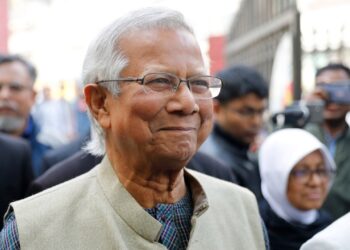[ad_1]
MEA backs German envoy’s comments on Beijing’s ‘outrageous’ claims on Arunachal Pradesh, in its latest message to China
MEA backs German envoy’s comments on Beijing’s ‘outrageous’ claims on Arunachal Pradesh, in its latest message to China
India and China are weighing a first meeting between Prime Minister Narendra Modi and President Xi Jinping in almost three years, even as a chill remains in relations with an as-yet-unresolved border crisis and increasingly sharp recent exchanges between the two countries.
While this meeting could come as early as mid-September, with both leaders currently expected to be present at the Shanghai Cooperation Organisation (SCO) summit in Uzbekistan, the G20 meet in mid-November in Indonesia, where both have confirmed their attendance, offers another possibility.
A meeting does, however, come with risks for New Delhi, which has viewed warily China’s recent attempts to portray ties as “normal” despite the situation at the Line of Actual Control (LAC), a perception that a high-level meet may reinforce. New Delhi reluctantly hosted Foreign Minister Wang Yi in March as he visited the region, but conveyed a strong message that India would not accept China’s demand to keep the border “in an appropriate place” and restore relations.
India has since kept up that messaging in public. On Thursday, the Ministry of External Affairs (MEA) backed the German Ambassador to India’s comments calling China’s claims on Arunachal Pradesh as “outrageous” and its transgressions at the LAC a “violation of international law”. Responding to German envoy Phillip Ackerman’s comments, which had generated anger in Beijing, MEA spokesperson Arindam Bagchi said the international community has a “proper appreciation” of India’s stand on boundary issues.
Mr. Jaishankar, in a speech in New Delhi on August 29, repeated for the third time in recent weeks India’s stand that normalcy in ties was predicated on normalcy on the border, a position he expressed last month during visits to Australia and Brazil, saying it was not “a conditionality we are imposing” but “stating the facts” on past agreements between the two sides. China’s military, for its part, last week cited those same agreements, which India has accused China of violating, to oppose upcoming India-U.S. high altitude military exercises, calling them “meddling”.
Mr. Jaishankar also indicated that differences went beyond the border, and pushed back against Mr. Xi’s earlier call for an “Asia for Asians”, describing it as “a sentiment that was encouraged in the past, even in our own country, by political romanticism”. He also cautioned, when speaking of an “Asian century”, against “overtones of triumphalism with which India at least should not be comfortable”.
Past meetings between Mr. Modi and Mr. Xi have been seen by both sides as helping calm border tensions — a brief conversation in July 2017 on the sidelines of a summit was seen as breaking the deadlock that led to the resolution of the stand-off in Doklam the following month. In recent months, however, the Chinese military has continued with a hardline stance on slow-moving LAC talks and refused to restore the status quo, a stand which, given Mr. Xi’s apparently tight control over the People’s Liberation Army (PLA), appears to be following his direction.
This will give New Delhi some pause for thought, even if both leaders appear likely to cross paths in Samarkand. According to an Uzbekistan Foreign Ministry official overseeing logistics, all preparations have been made for the summit and “heads of all eight member countries” are expected. In addition, Uzbekistan’s SCO national coordinator Rakhmatula Nurimbetov has been quoted as confirming that President Ebrahim Raisi of Iran, which is due to join the SCO as a member this year, will also join.
The MEA said earlier that Mr. Modi’s visit to Samarkand for the SCO summit would be announced at the “appropriate time”, although a formal statement on Mr. Jaishankar’s visit to Tashkent in July for the SCO Foreign Ministers’ meeting said they had “discussed the preparations for the forthcoming SCO Summit of Heads of State scheduled to be held in Samarkand on 15-16 September.” A factor in India’s possible attendance is India taking over as the Chair of the SCO, with New Delhi hosting the summit in 2023, adding a layer of importance to Prime Minister Modi’s attendance.
The Wall Street Journal reported on August 19 that Mr. Xi’s office “has also begun preparing bilateral meetings on the sidelines of the summit with the leaders of Pakistan, India and Turkey, who are also making plans to attend”. However, the Chinese Defence Minister being the lone absentee at the recent SCO Defence Ministers’ meet has raised doubts on whether Mr. Xi will travel, with Beijing on Wednesday also announcing an all-important party congress on October 16 which will mark the start of the Chinese leader’s third term. Mr. Xi has not left China, the only country to still follow a strict zero-COVID policy, since the pandemic began.
The last meeting between Mr. Modi and Mr. Xi, in Brazil in November 2019, reflected a period in the relationship that most in New Delhi now believe there is no returning to. Taking place a month after Mr. Xi’s visit to Chennai for the second “informal” summit, Mr. Xi told Mr. Modi his “successful meeting” with him “went very well” and he was “willing to maintain close communication” to “jointly steer the direction of China-India relations” and “increase political mutual trust”. Mr. Modi said their meetings in Wuhan and Chennai “strengthened trust and friendship”.
“I am looking forward to meeting with you again in China next year,” Mr. Xi told Mr. Modi, following his invite for a third summit. Less than six months later, the Chinese military would send two divisions to the LAC, leading to a crisis that remains unresolved, New Delhi still searching for a “credible explanation” for what went wrong, and the leaders of the world’s two largest countries essentially breaking off all communication for close to three years after meeting each other no less than 18 times in the previous six.
[ad_2]
Source link












